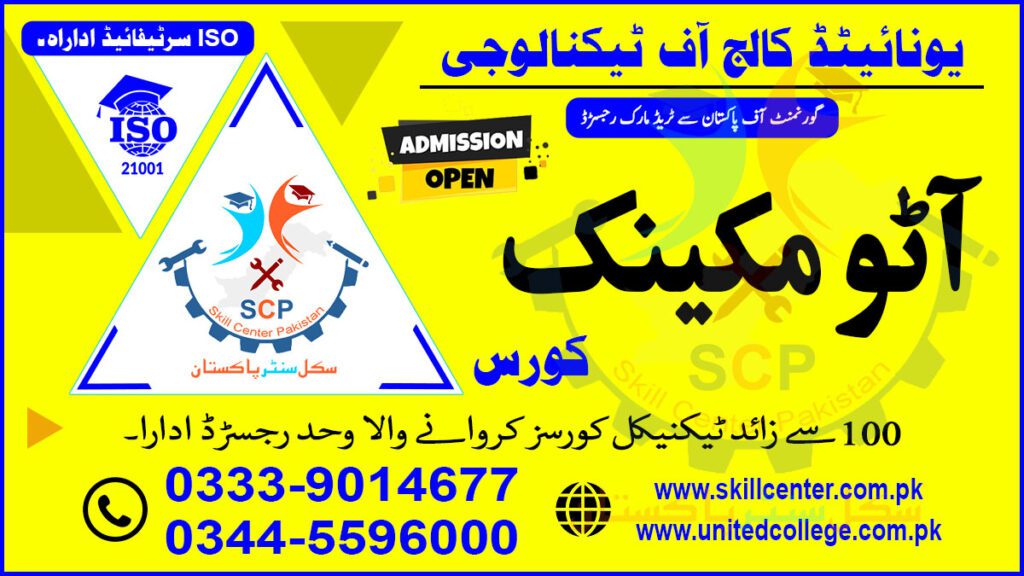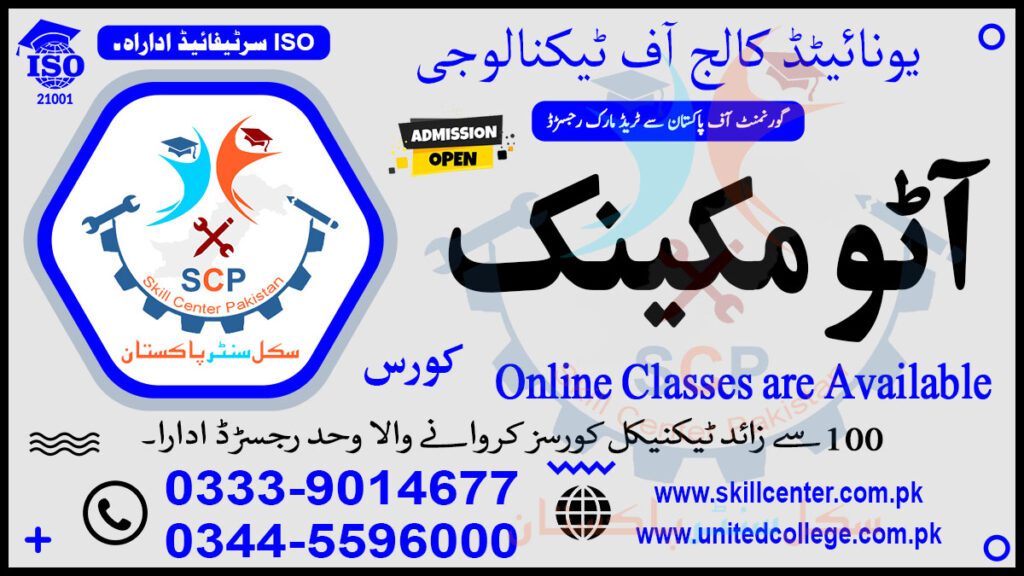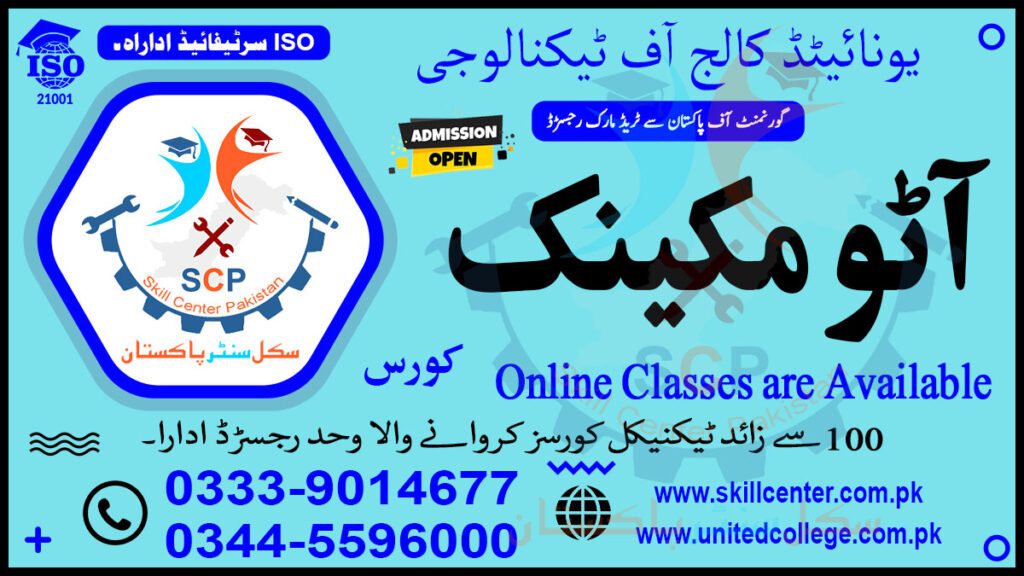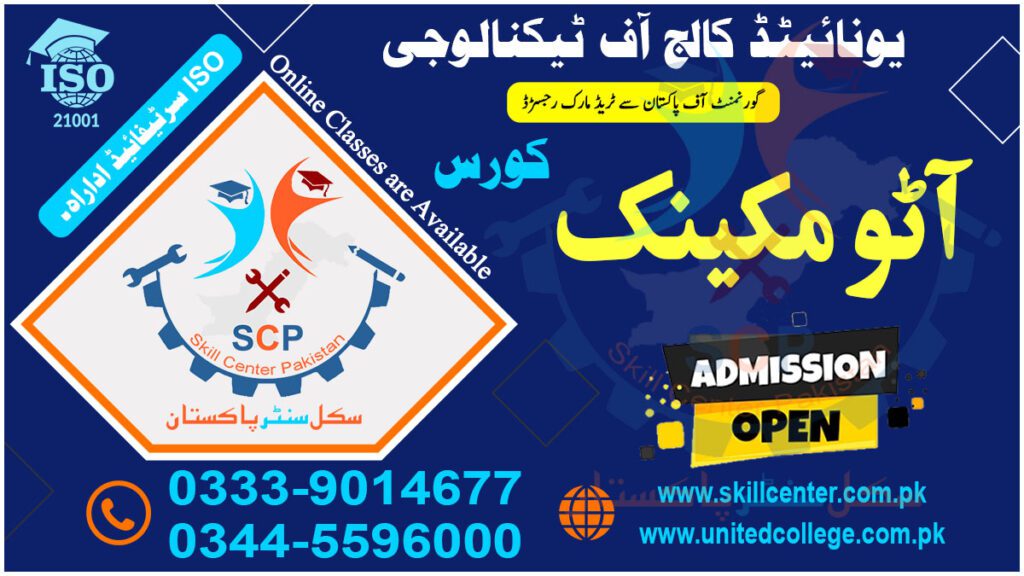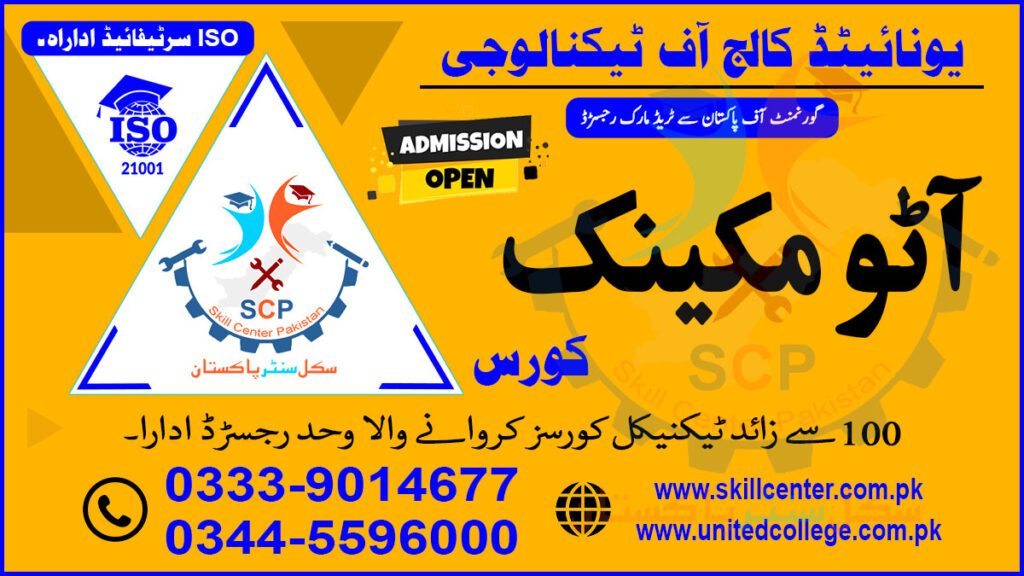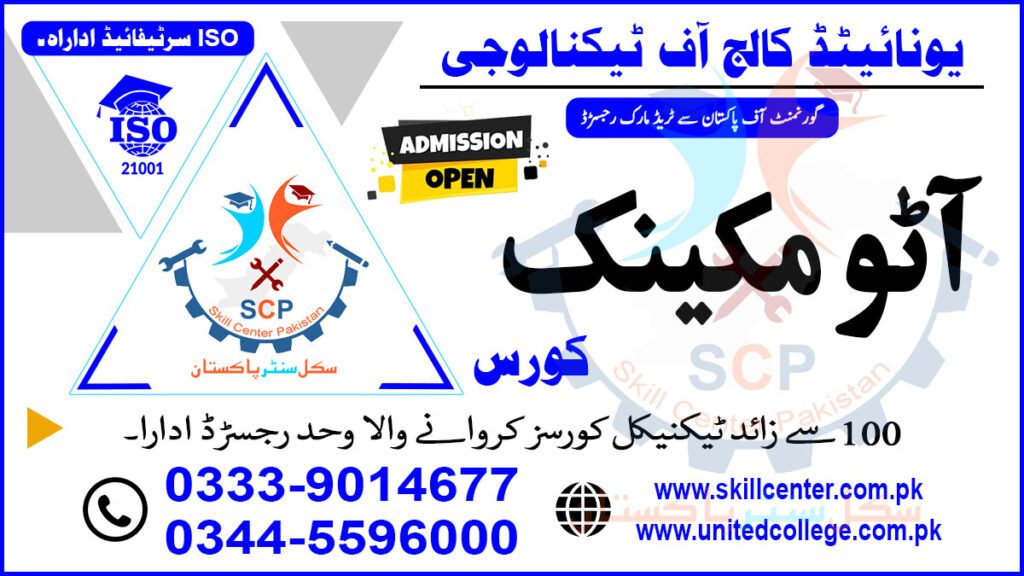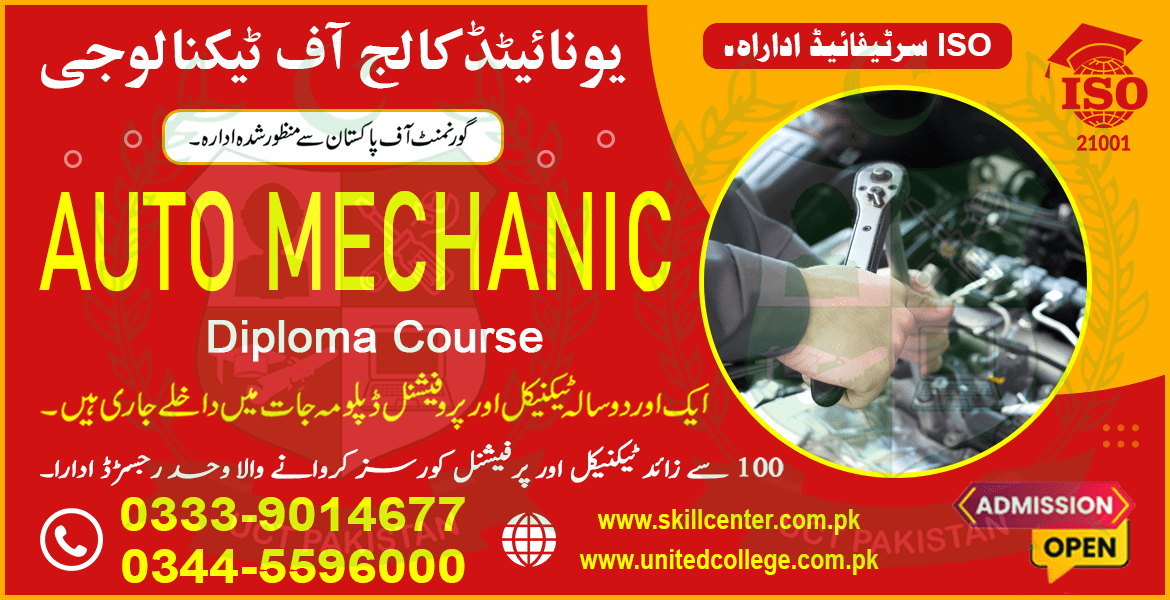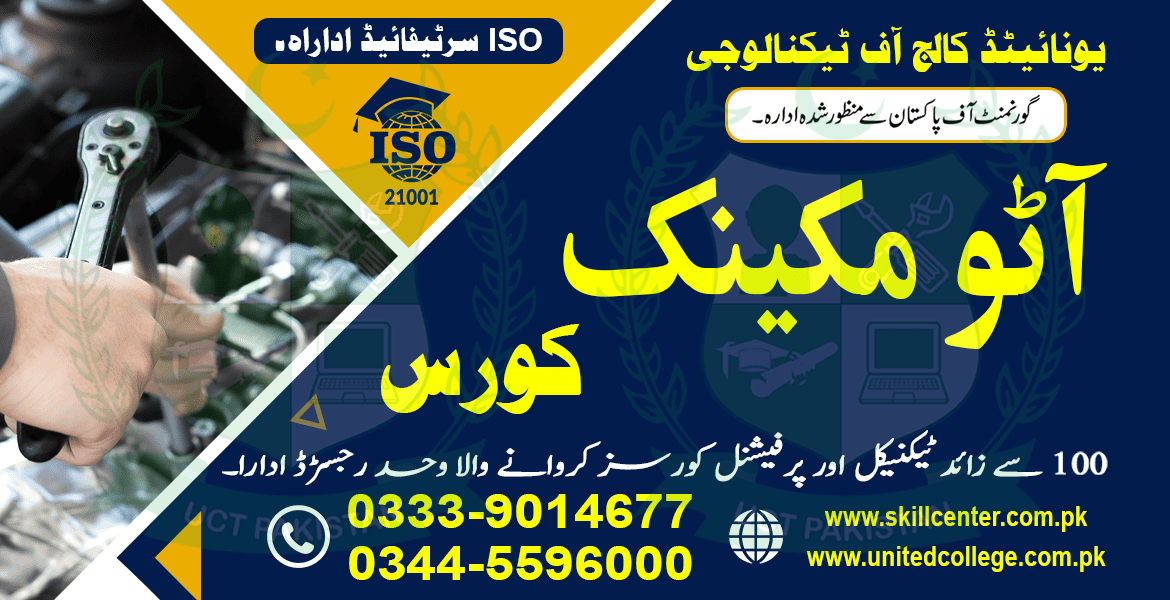

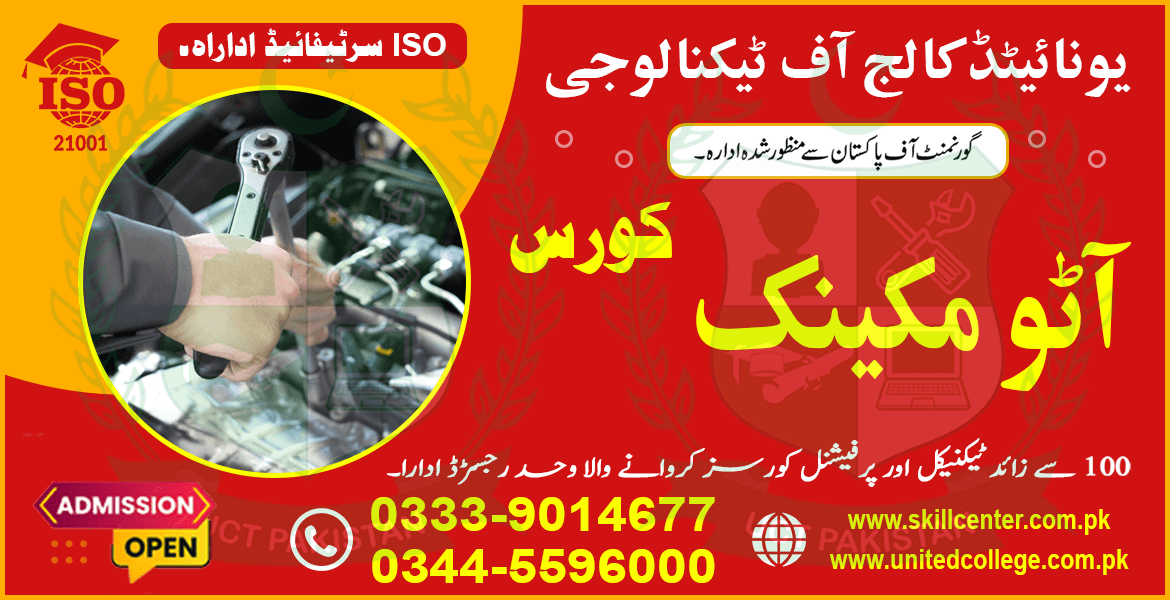





Auto Mechanic Course in Gujrat Pakistan 0333-9014677
Introduction
The information and abilities required to diagnose, fix, and maintain cars are taught in auto mechanic courses. These courses can range from one- or two-year certificate programs to two-year associate degree programs, and they are frequently offered in vocational schools, community colleges, and technical institutes. Engine maintenance, gearbox, and braking systems, suspension and steering, electrical systems, and computerized diagnostics are just a few of the subjects covered in the courses. Together with safety procedures, tools and equipment, and customer service, students will cover these topics. Auto mechanic courses sometimes incorporate practical training in a garage or workshop, in addition to in-class education. Students can use the tools and equipment they will need in the field to practice the skills they have acquired in a real-world setting. Graduates of auto mechanic programs may work as mechanics, technicians, or service advisers at auto repair shops, dealerships, or other car-related enterprises after completing their training. Moreover, they may decide to pursue advanced diagnostics, diesel engines, hybrid and electric cars, or other specific fields of study.
Auto Mechanic Training Course Outline
Depending on the school and program, the particular course plan for an auto mechanic course may change, however, the following are some typical subjects covered in these courses.
- Introduction to Automotive Technology: A synopsis of the car business, its history, and a primer on terminology and fundamental ideas in the field.
- Engine Repair: Covers internal combustion engine concepts, engine parts, and fundamental engine diagnosis and repair techniques.
- Auto electrical and electronic systems, such as batteries, alternators, starters, ignition systems, lighting systems, and computer-controlled systems, are covered in this section along with their use and maintenance.
- Drum and disc brakes, brake hydraulics, and anti-lock brake systems are all covered under the section on brakes and suspension. Also covers steering and suspension systems, including shocks, struts, ball joints, and tie rods.
- Heating, Ventilation, and Air Conditioning (HVAC): Covers the maintenance and repair of vehicle HVAC systems, including climate control systems, refrigeration concepts, and troubleshooting techniques.
- Covers the fundamentals of automatic and manual gearboxes, including hydraulic and electrical controls, clutch architectures, and drivetrain elements.
- Engine Performance: This topic includes sophisticated engine diagnostic and repair techniques, as well as discussions of computerized engine management systems, emissions controls, and fuel injection systems.
- Shop Safety and Ethics: Includes safe working procedures, PPE, managing dangerous chemicals, and professional conduct at work.
- Effective communication skills, customer service methods, and dispute resolution procedures are covered in the subject of customer service and communication.
The majority of auto mechanic courses also heavily emphasize hands-on instruction in a workshop or garage environment, giving students the chance to put their newly acquired abilities to use.
Course Duration: 3 MONTH
Total Fee: 35,000/-
Auto Mechanic Course in Gujrat Pakistan 0333-9014677
Auto Mechanic Course in Gujrat Pakistan 0333-9014677
Auto Mechanic Course in Gujrat Pakistan 0333-9014677
Auto Mechanic Course in Gujrat Pakistan Auto Mechanic Course in Gujrat Pakistan Auto Mechanic Course in Gujrat Pakistan





